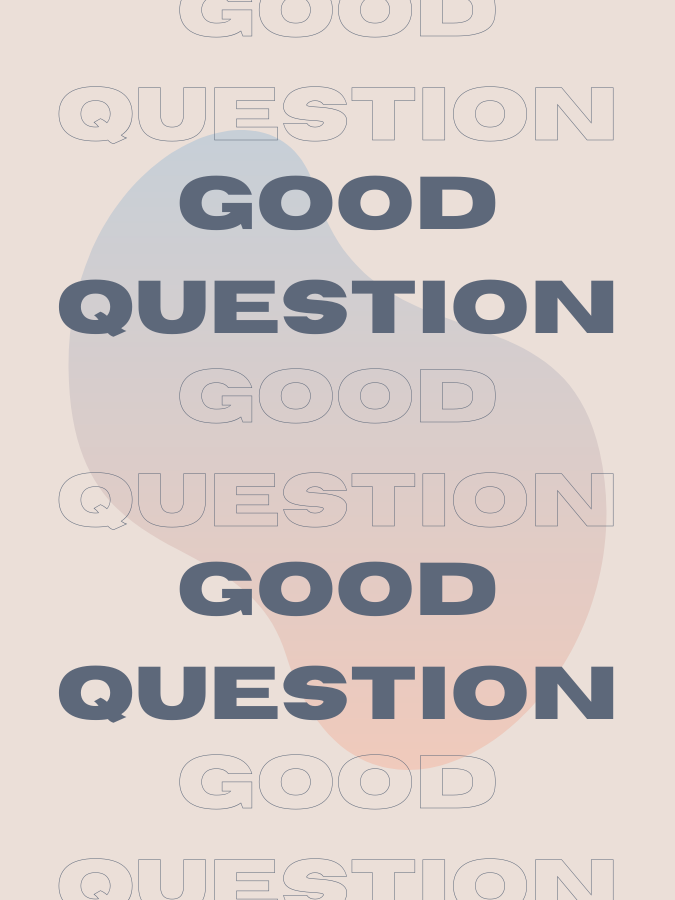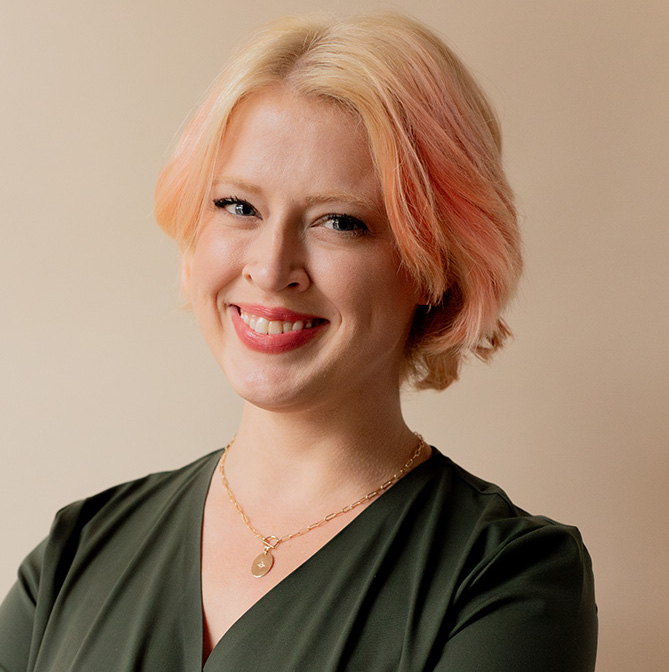
Why do I feel guilty after posting a selfie?
Welcome to our advice column where our editors offer thoughtful answers to your pressing inquiries. Head here to submit an anonymous question, and follow here for new Good Questions.✨
Why do I feel guilty after posting a selfie?
Some days, when I’m feeling cute, I snap a selfie, painstakingly edit it, write and re-write a caption, only for me to take one final look at it and file it away forever in my Instagram drafts. I’m always thinking: what will people think?
We’re told that selfies make you a narcissist and that narcissism is shameful. Search results tell us the same thing: that selfies are the sign of a self-absorbed person. So much of what I’ve read about selfies equates self-appreciation with a personality disorder—the truth is, though, that neither of those things deserve harsh judgment.
If you grew up in any sort of shame-based belief system, this is likely the source of the guilt you feel. We’re not “supposed” to think highly of ourselves because that’s too close to a toxic form of pride. But no one ever talks about how humility can be toxic, too.
I spent my formative years learning how to stay small, to cover up, to avoid drawing attention to myself—all in the name of humility. What that became, though, was self-erasure. I thought very little of myself, allowing other people’s opinions of me to sway the entire course of my life. I had no boundaries because I had no self-respect. It translated to my self-esteem as well: I could not believe I was beautiful until someone else told me I was beautiful.
“I spent my formative years learning how to stay small—all in the name of humility. What that became, though, was self-erasure.”
That brings me back to selfies: I feel guilty about them, too. Like I’m taking up too much space that I don’t deserve. I count the flaws on my face like they’re personal failings, and I worry about the crookedness of my nose as if it’s going to offend someone. In reality, no one notices. No one has ever reached out to tell me “You are self-absorbed, and selfies make you a bad person.” Sharing a photo of yourself on the internet does not make you a bad person. It just means you’re a person with internet access.
“Sharing a photo of yourself on the internet does not make you a bad person. It just means you’re a person with internet access.”
It’s human to crave a little self-reflection, and thanks to our phones, we conveniently carry around a mirror 24/7. I take selfies as a part of my self-care. Bear with me, I’ll explain. Whenever I feel particularly disconnected from myself, I find that seeing a photo of my face and my body can remind me that I exist, literally, in this world. I get a glimpse of what I look like to the people who love me dearly, and it reminds me to love myself. So, if you want to celebrate the cuteness of your lovely face, I say snap a selfie. If you want to share it to say “Hello, I am here!” then do it.
“I get a glimpse of what I look like to the people who love me dearly, and it reminds me to love myself.”
Share a selfie as a celebration, as self-expression, as a kindness to yourself. But here’s the thing: if you’re sharing selfies because you want “likes” to fill in the space where self-love should be, you might only find disappointment. External validation can be healthy and supportive but it helps to match it with internal confidence and self-awareness. If I’m not at my healthiest, I prefer to snap selfies that I never share—just so I can remind myself of who I am in this moment, without relying on what other people tell me about myself.
“External validation can be healthy and supportive but it helps to match it with internal confidence.”
I’m off to post a selfie, and I hope you will, too. Because we could all use a little less shame and a lot more kindness these days—kindness to each other, and kindness to ourselves.
Read more Good Questions here.
Have something on your mind? Click the button below 👇 ✨
Emily Torres is the Managing Editor at The Good Trade. She’s a Los Angeles transplant who was born and raised in Indiana, where she studied Creative Writing and Business at Indiana University. You can usually find her reading or writing, caring for her rabbits, or practicing at the yoga studio. Say hi on Instagram!

